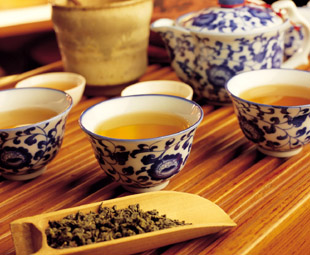| Home / Health / Diet & Nutrition | Tools: Save | Print | E-mail | Most Read |
| Oolong Tea Helps You Lose Weight |
| Adjust font size: |
Scientists have proven that drinking tea can help people lose weight.
The focus of the study was to help address growing obesity among Chinese children, especially in cities. The groundbreaking research reveals that overeating is not the only cause. "Diet and lifestyle are only the external reasons," said Guo Xirong, director of the Nanjing Institute for Pediatrics affiliated to Nanjing Medical College. "The genetic conditions of the individuals could predispose, or even cause, children and adolescents to become overweight." Guo won the Soong Ching Ling Foundation Pediatrics Award last week for his pioneering research in identifying the new genes related to obesity and suggesting new intervention strategies. Despite their findings, Guo admits there is no magic bullet for treating childhood obesity. But he said a healthier diet and lifestyle will help. According to Guo, the seeds of obesity can be planted in children much earlier than generally believed. When children are still in the fetus, they tend to become obese later in life if pregnant mothers eat too much and have a dramatic increase in weight. Compared to bottle-fed infants, babies who are breastfed are less likely to become obese later in their life because the secretion of breast milk is limited. Bottle-fed babies tend to develop a larger appetite because they are fed each time they cry.
Guo particularly recommends Oolong tea, one of the lesser-known teas in the West. Of the total amount of tea produced and consumed in the world, 78 percent is black, 20 percent is green, and less then 2 percent is Oolong tea. Black tea is consumed primarily in Western countries, the Middle East and South Asia whereas green tea is drunk primarily in China, Japan and a few countries in North Africa. The production and consumption of Oolong tea are primarily confined to southeastern China. (China Daily June 8, 2007) |
| Tools: Save | Print | E-mail | Most Read |
 |
| Related Stories |

